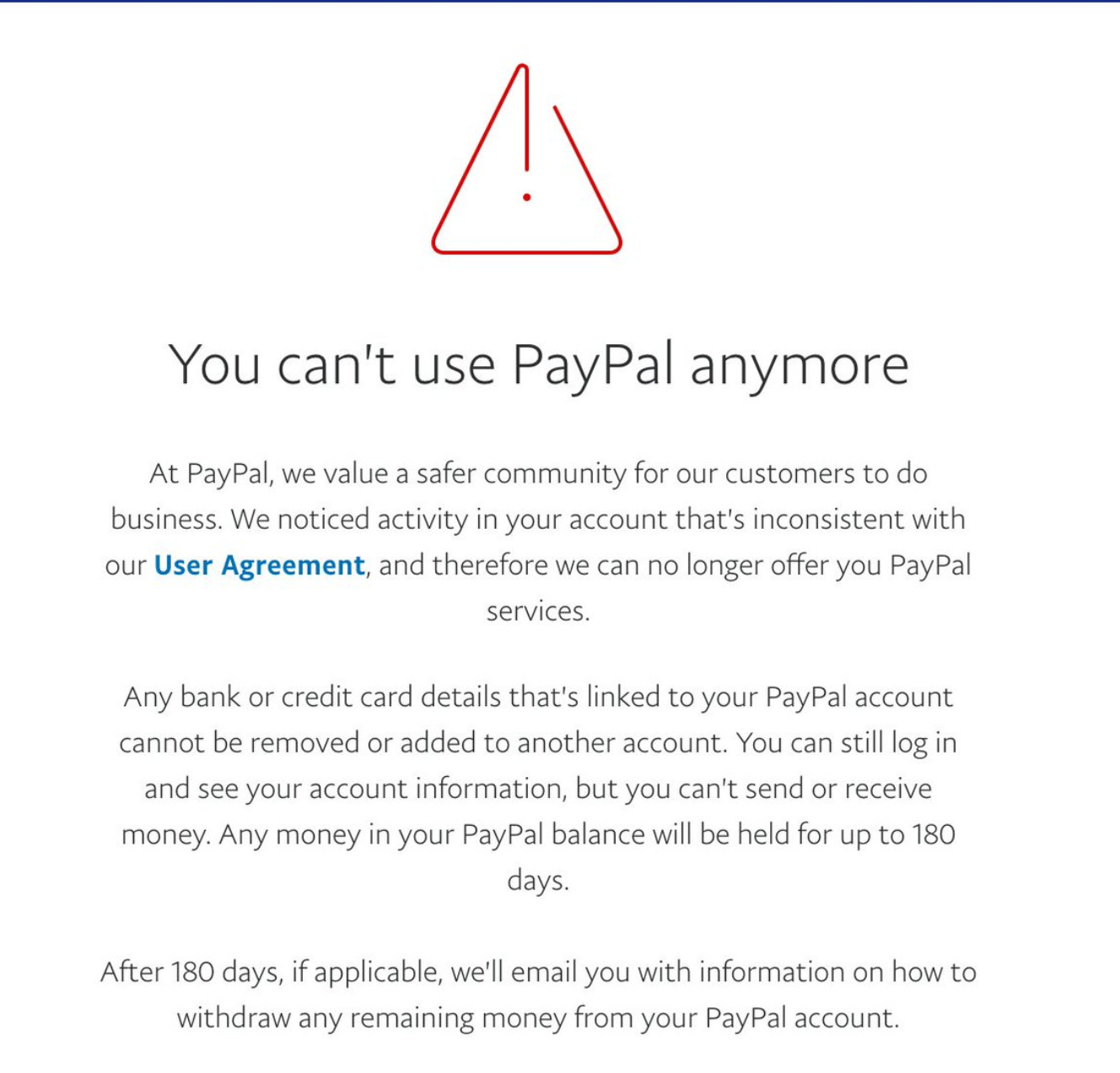
by Matt Taibbi at TK News
In the last week or so, the online payment platform PayPal without explanation suspended the accounts of a series of individual journalists and media outlets, including the well-known alt sites Consortium News and MintPress. Each received a variation of the following message:
Unlike many on the list, Consortium editor Joe Lauria succeeded in reaching a human being at the company in search of details about the frozen or “held” funds referenced in the note. The PayPal rep told him that if the company decided “there was a violation” after a half-year review period, then “it is possible” PayPal would keep the $9,348.14 remaining in Consortium’s account, as “damages.”
“A secretive process in which they could award themselves damages, not by a judge or a jury,” Lauria says. “Totally in secret.”
Consortium, founded by the late investigative reporter Robert Parry, has been critical of NATO and the Pentagon and a consistent source of skeptical reporting about Russiagate, as well as one of just a few outlets to regularly cover the Julian Assange case with any sympathy for the accused. Ironically, one of the site’s primary themes involves exploring disinformation emanating from the intelligence community. The site has had content disrupted by platforms like Facebook before, but now its pockets are being picked in addition.
This episode ups the ante again on the content moderation movement, toward the world hinted at in the response to the Canadian trucker protests, where having the wrong opinions can result in your money being frozen or seized. Going after cash is a big jump from simply deleting speech, with a much bigger chilling effect. This is especially true in the alternative media world, where money has long been notoriously tight, and the loss of a few thousand dollars here or there can have a major effect on a site, podcast, or paper.
As MintPress founder and executive director Mnar Adley points out, the current era of content moderation — characterized by private platforms either overtly or covertly working with government to identify accounts for censure — really began with PayPal’s historic decision in 2010 to halt donations to Wikileaks. In that case, PayPal acted after receiving a letter from the State Department claiming the site’s activities were illegal.
“PayPal banning donations from WikiLeaks really set up the blueprint for today’s censorship,” Adley says.
Lauria believes PayPal is basing a potential claim on his company’s funds on a list of restricted activities in its service agreement that includes providing “false, inaccurate or misleading information.” He notes, of course, that “false” is “what they think is false, that is,” which is troubling for a pair of big reasons.
One is the ongoing possibility of government or law enforcement involvement in fact-checking decisions, as PayPal announced just last year it would be cooperating with authorities in a content moderation campaign. The other is that the thread connecting the recent affected accounts — which include the former RT contributor Caleb Maupin and the host of the Geopolitics and Empire podcast Hrvoje Morić, among others — is that they’re all generally antiwar voices, who’ve been critical either of NATO or of official messaging with regard to the Ukraine conflict.
Alan MacLeod of MintPress is one of the writers who received the notice about improper “activity” in his account. He assumed at first there had to be a mistake.
“The claim that my activity is ‘inconsistent’ with their user agreement is complete nonsense because I literally haven’t used my PayPal account since at least August of 2021,” he says. “I actually assumed [the suspension] was because it’d been inactive for too long.”
MacLeod’s most recent article is entitled, “The NATO to TikTok Pipeline: Why is TikTok Employing So Many National Security Agents?” In it, he laid out a long list of “former spooks, spies, and Mandarins” hired by TikTok:…
Continue Reading
